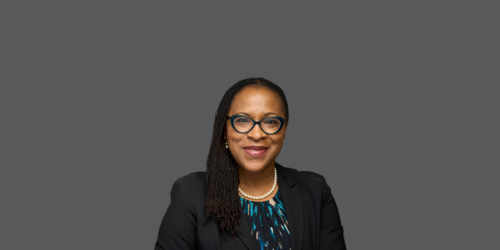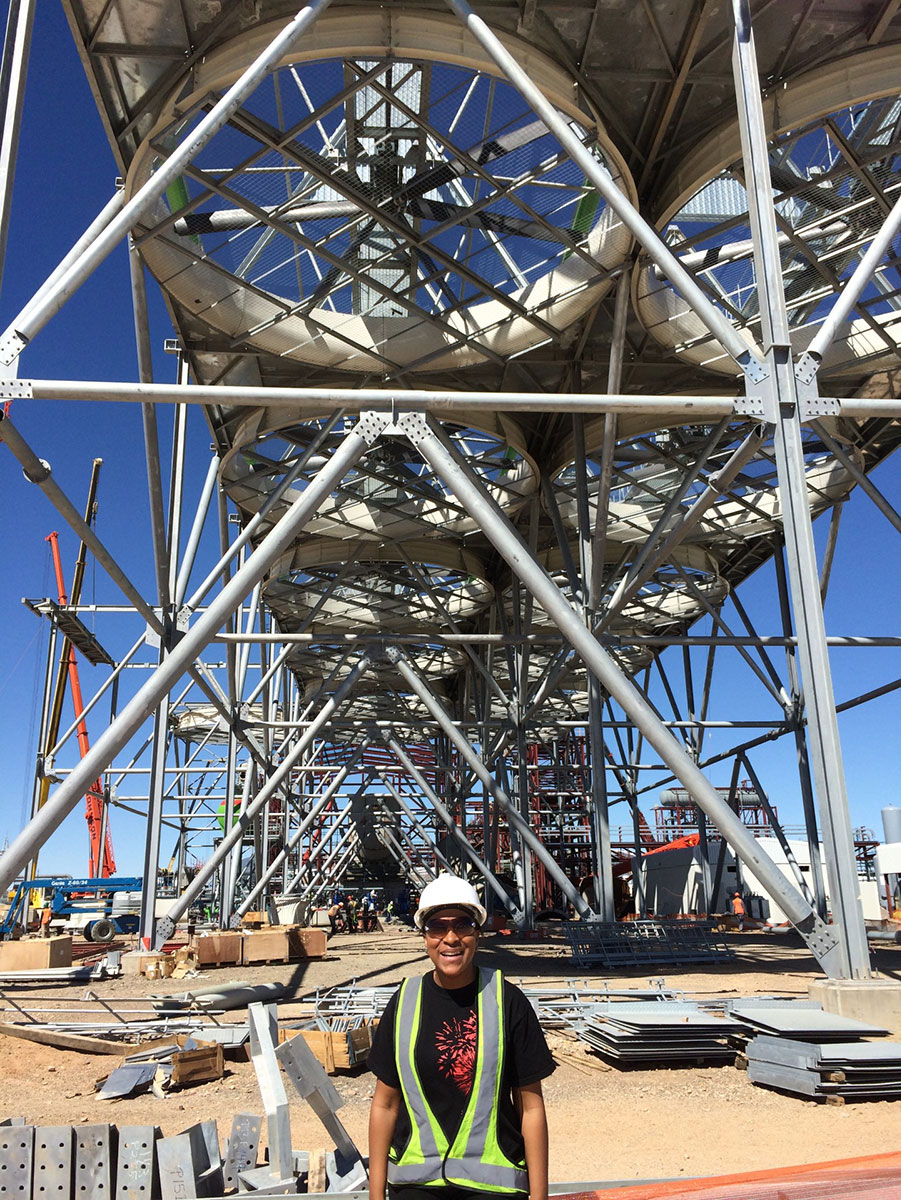
Ije Ikoku Okeke: Mobilizing Catalytic Finance to Drive Radical Implementation
RMI’s new Managing Director of Catalytic Climate Capital and the Global South is bringing her experience to deliver the speed and scale needed to accelerate climate solutions.
Ije Ikoku Okeke grew up witnessing firsthand the impact that energy extraction had on local communities. In the Niger Delta, in Southern Nigeria, lush landscapes were marred by environmental degradation caused by oil production. Ije’s personal journey, largely shaped by witnessing such devastation, led her to a career dedicated to financing and deploying alternative, cleaner sources of energy. Her commitment to this path has ultimately led her to RMI to support the radical implementation of clean energy projects in the Global South at the speed and scale necessary to make a meaningful difference.
Bearing witness to environmental degradation
Though Ije was born in the United States, she spent her formative years in Port Harcourt, Nigeria, where she saw firsthand the toll that the extraction and use of fossil fuels were exacting on her community and the ecosystem.
The experiences of her childhood left an indelible mark. She realized that the exploitation of natural resources came at a steep cost. “I witnessed how the quest for energy affected the livelihoods of local communities,” she explains. “I always wondered whether there wasn’t a better way for us to satisfy our need for energy in a more sustainable way.”
Okeke, whose father was a professor in petroleum and natural gas engineering, is a second-generation energy professional and a second-generation Stanford graduate. Like her father before her, she studied engineering at Stanford University. Realizing access to finance was a critical component for growth and development in emerging markets, she also went on to get an MBA from Wharton at the University of Pennsylvania.
A career dedicated to transformational energy projects

Okeke then spent the next 15 years working at the intersection of finance and energy with a number of global firms including the International Finance Corporation (IFC), Emerging Capital Partners, and CECAfrica Investments. She worked in Latin America and Sub-Saharan Africa originating, financing, and developing projects in excess of US $3 billion. Highlights included the first independent power projects in Cameroon, IFC’s largest equity investment in an electricity distribution company in Brazil, and the first Renewable Energy IPP program in South Africa. Her framework for measuring scale and impact was largely developed in these years and they included what she calls the 4 I’s:
The road to RMI
Okeke credits DESSA, an innovative program she helped create, with leading her to RMI. She was working CECAfrica and tasked with co-leading the turnaround of the Abuja Electricity Distribution Company (AEDC, a subsidiary of CECAfrica and one of Nigeria’s largest utilities). AEDC was struggling with non-cost reflective tariffs, an energy supply deficit, and increasing competition from decentralized energy developers. “Our customer base was being cannibalized while we waited for government regulations to evolve,” she says. “So we took matters into our own hands and started exploring innovative business models that would allow us to partner with various developers and service providers. Radical collaboration was necessary and AEDC was the first to attempt this.” Okeke and AEDC called that program DESSA, Distributed Energy Solutions and Strategy for AEDC. “We tested it out with a few potential partners but wanted more robust analysis along with global expertise.” And that’s when RMI literally walked in the door.
RMI had advised on similar projects in other parts of the world, and the team was excited to support what Okeke was embarking on. RMI and AEDC jointly applied for a USTDA grant to help develop and refine the business models for DESSA. “And the rest is history,” says Okeke. “The output from that work has provided the template for utility business model innovation that’s being deployed at several utilities in Nigeria and elsewhere on the continent. That’s the sort of impact we want to have in the markets we serve.”
When Okeke learned of RMI’s ambition to implement a program to accelerate the deployment of capital to fund clean energy projects and companies, she jumped at the opportunity. “It was an incredibly compelling proposition that was hard to turn down!” Okeke explains. “Here was an opportunity to do what I loved doing on a global scale, touching on key markets in the Americas, Africa, and Asia.”
She also describes her admiration of RMI in her decision to join. “From my experience and interaction with folks at RMI, they are very purpose driven and very committed to the challenge in front of us, and it shows up in the work that they do every day.”
“I feel RMIers have that rare combination of commitment, technical expertise, and optimism,” she adds.
Scaling up global climate finance to support radical implementation for a resilient future
Okeke joined RMI this past July to co-lead the Global South program and head the Catalytic Climate Capital (C3) program which aims to mobilize, scale up, and catalyze climate finance globally. Their goal is to support the development of 10GW of clean energy over three years in the Global South and mobilize $15 billion from the private sector to support the energy transition.
The challenge of combating climate change requires a collaborative effort on a global scale. The impacts of climate change are most severely felt in the Global South, the very regions Okeke had witnessed being exploited for their resources. With a sense of urgency, Okeke wishes to embark on a mission to spearhead the implementation and development of clean energy projects in the Global South. Through strategic partnerships with governments, NGOs, and private sector entities, she plans to scale up investments in renewable energy infrastructure.
Okeke says that as she takes on this new role at RMI, a key metric of success would be the catalytic ratio. “For every dollar that we as an institution are able to mobilize ourselves, we want to bring in 40 times that from the private sector.”
And she believes that RMI provides the perfect platform to mobilize these resources. “As we look at radical implementation in the C3 program, part of what will make that radical implementation successful is radical collaboration and bringing private capital, philanthropic capital, and public capital into the projects that we support,” she explains. “The strength that RMI has as an institution is that ability to bring key stakeholders together to transform how we produce and use energy.”
Okeke is excited to join RMI’s leadership and is looking forward to working with the team to support energy transitions in this decisive decade.